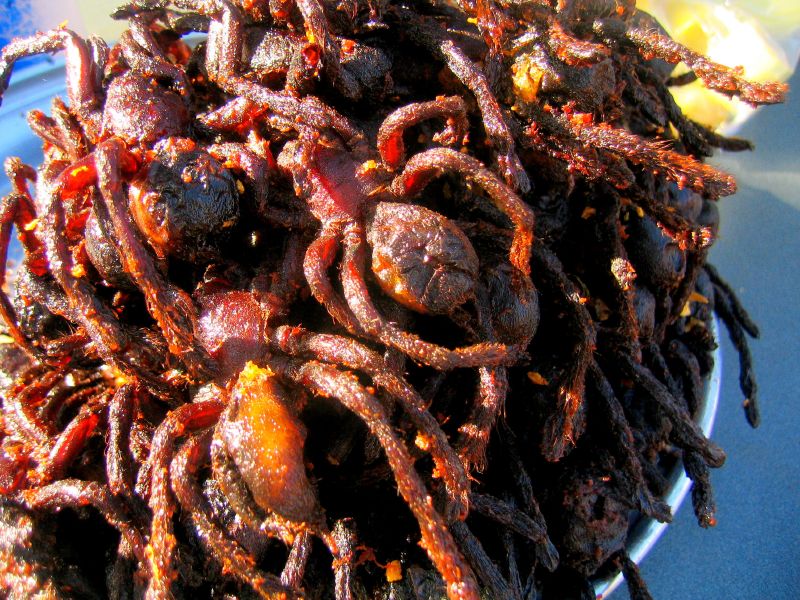Image by aldenjewell under Creative Commons License
Renting a car while travelling often feels like getting a endoscopy done. It always feels like you get quoted one rate (in the ad) and end up paying 2 or 3 times as much. but why? Why does it cost so much and how can you save money on your next rental?
The catch
I used Avis.com and checked the price of a 7 day rental at LAX in July. $974.95 for the base rental but add all of the options and you end up at $1677.02. This is how they get you. They slowly convince you to add options which eat away at your credit card balance.
For this reservation, Avis is kindly offering these option:
- Loss Damage Waiver - $29.99 per day
- Personal Accident Insurance - $4 per day
- Personal Effects Protection - $2.95 per day
- Additional Liability Insurance - $14.80 per day
- Roadside Assistance - $6.49 per day
So far, we are at almost $400 for a 1 week rental but the fun doesn't stop there. Then they slap on the mandatory additional fees:
- Concession Recovery Fee (11.11%)- $153.46
- Customer Facility Charge - $10.00
- Tourism Assessment Fee (2.6%) - $25.35
- All taxes - $105
This adds another $294.46 to the rental. So we are ~ $700 in additional fees and taxes.
How to save money when renting a car
Shop early
Nothing beats elbow grease and you will have to work if you want to save money. Once you've locked up your travel dates, go on the major travel reservation sites (hotwire, expedia, travelocity, etc) and compare the different pricing options. If you are a member of an association (CAA, AAA, Costco, etc) check through them what kind of deals they offer.
Some deals are on price while others may bundle additional amenities (which still help reduce your overall price) like GPS rental, baby seat, free upgrade ,etc).
Avoid buying their insurance
Before you make your car rental reservation, call your car insurance broker and ask if your existing policy covers rental cars. IF you are travelling to another country, make sure your own policy covered you in foreign lands.
As a Canadian, I have a free option that covers me in the US and on rental cars. I just had to ask for it.
Make sure your insurance covers the full value of the car and that it also covers loss of use. If you damage a rental car, you will be charged for the repair plus any rental income the rental company lost because the car was in the shop.
When in doubt, its best to buy the rental company insurance (LDW).
The second type of insurance they are trying to sell is personal effect protection which covers your personal items stolen from the rental car. Typically your homeowner insurance offers coverage for this but you may want to double check. When I travel, I never leave valuable items in the car so I always skip this one.
Also check with your credit card issuer. Many credit cards offer complimentary LDW coverage if the entire rental amount was charged to it. The claim process is a little bit longer (than the rental company policy) but the money you save will be well worth the effort.
The Airport convenience fee
Often times you are charged concession recovery fees for airport pickups. In the above case it is 11.11% or about $150. when possible, try to rent your car off the airport limits.The extra couple of dollars in cab fair will be more than made up with the extra fees you are saving.
Be a snappy tourist
Anytime you are renting a car, you are responsible for it the minute you drive off the lot. If there is existing damage on the car you didn't notice, you will get stuck with the bill. The moral of the story is be anal retentive and examine the car with a fine tooth comb. Look for dings, scratches or discolorations. Have the agent add everything to your rental agreement and initial it with his name.
When I travel I always have a flashlight and use it to check tires, wheel well, undercarriage, everywhere. Do the inspection in a brightly lit location and take your time. Don't feel pressured.
Also check the inside. Is the interior in good condition. Is anything ripped, damaged or seem excessively used? Does it smell (if it smells bad or like smoke) you may end up being charged extra for cleaning. Look everywhere including the trunk. Is the spare tire there. A friend was charged a couple of hundred dollars because the spare was missing.
Anytime you find something, take a picture of it with your camera and make sure to capture some of the surroundings so its clear the pics were taken at the time of rental. These may be needed if there is a dispute.
Avoid accessories
Avoid buying or renting accessories from the rental companies, they are always excessively over-priced. Most companies charge $15 a day for a GPS when I can buy a GPS app on my iPhone for $40. They sell cheap low amperage USB lighter plugs for $15-20 (worth $5 in most electronics stores).
On a recent trip to Disney in Florida, they wanted me to rent a speedpass for the toll. I calculated that I spent about $14 on tolls and the device rental would have cost $55 plus the tolls.
Conclusion
For short trips, I try to avoid renting cars all together. When I don't have the choice, I shop, inspect and play hardball. Hopefully these tips will save you some headaches and some money on your next trip.







